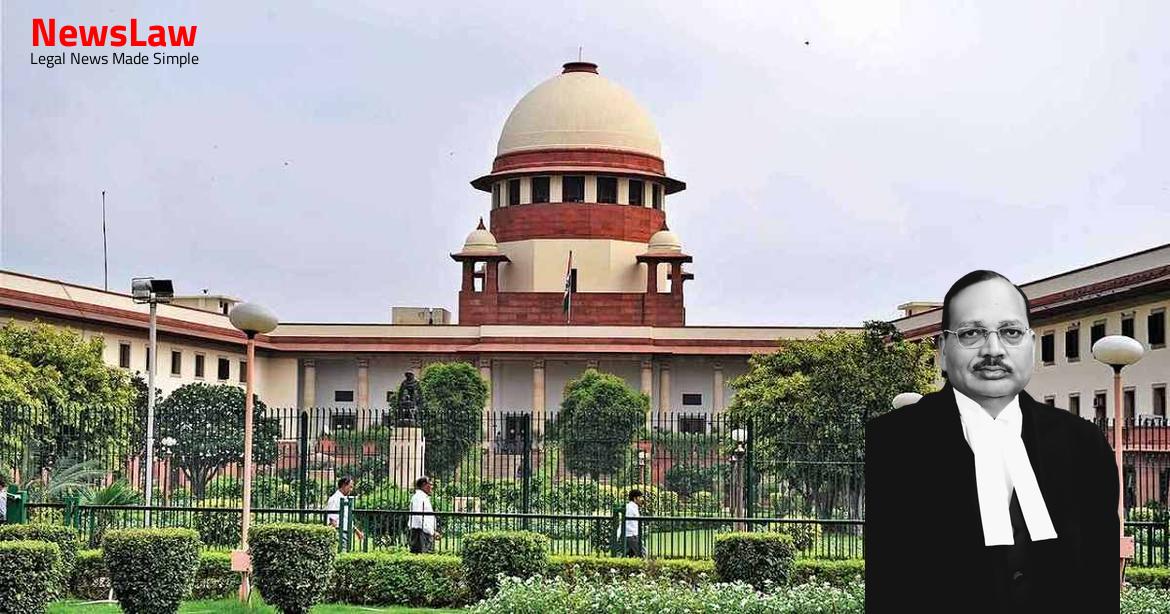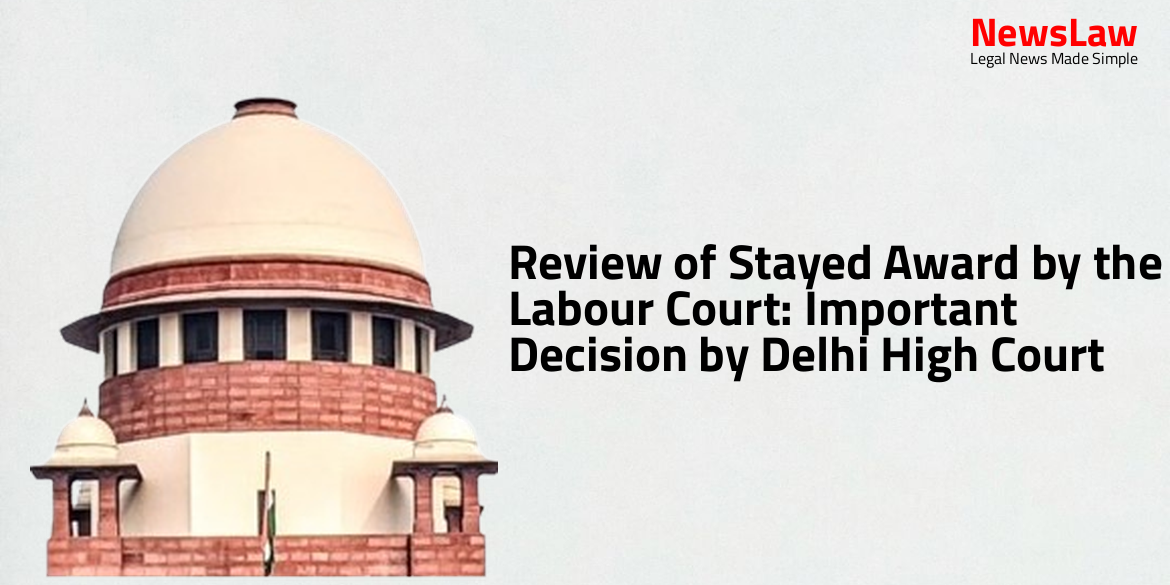In the case of Sharda vs Dharmpal, a significant ruling has been made by the Supreme Court regarding a divorce case involving parties who lived together in the UK after getting married in Chennai. The appellant husband has been directed to undergo a medical test to determine his potentiality. Stay tuned for more details on this key development.
Facts
- Parties got married in Chennai on 23.07.2013 and moved to the United Kingdom.
- They lived together happily for 7½ years but separated in April 2021 due to disputes.
- Appellant/husband alleges that wife did not join him or respond to communication post-separation.
- They stayed in wife’s father’s residential property after returning from the UK.
- Appellant/husband requested for fertility and psychological tests for both parties.
- Husband filed for restitution of conjugal rights, while wife filed for divorce citing husband’s impotency as the reason.
- Trial Court ordered the constitution of a medical board for conducting tests on both parties.
- Both parties were directed to maintain secrecy regarding the test results.
- The High Court allowed the wife’s challenge to the Trial Court’s order.
- Appellant’s counsel argued in Supreme Court that the husband is willing to undergo the potentiality test.
- Question raised on High Court’s decision to set aside the entire Trial Court order.
Also Read: Reinstatement of a Class-IV Employee: Legal Analysis
Arguments
- The learned counsel for the appellant referred to the decision of the Court in the case of “Sharda vs Dharmpal” (2003) 4 SCC 493.
- The counsel presented arguments in favor of the appellant’s position.
- The counsel highlighted specific points from the aforementioned case to support their arguments.
Also Read: Granting Divorce on Ground of Irretrievable Breakdown of Marriage
Analysis
- The respondent/wife is not willing to undergo any test including fertility test or mental health check-up.
- She cannot be compelled to undergo such tests against her will.
- High Court allowed revision petitions by wife without assigning cogent reason for not sending husband for potentiality test
- High Court focused on parties’ conduct instead of merits of interim applications decided by Trial Court
- High Court’s consideration of parties’ conduct not relevant for validity of Trial Court’s order
- The husband’s willingness to undergo a paternity test was a crucial factor in the case
- The Trial Court’s order for the potentiality test should have been upheld
- The High Court should have considered the husband’s willingness as significant
Also Read: Conviction and Acquittal in a Criminal Trial: Legal Analysis
Decision
- The present appeals maintain the order passed by the Trial Court on 27.06.2023.
- The Trial Court directed the appellant/husband to undergo a medical test to determine his potentiality.
- The medical test should be conducted as indicated by the Trial Court within four weeks from today.
- The report of the medical test must be submitted within two weeks after its conduct.
Case Title: DEEP MUKERJEE Vs. SREYASHI BANERJEE (2024 INSC 274)
Case Number: C.A. No.-004722-004723 / 2024



